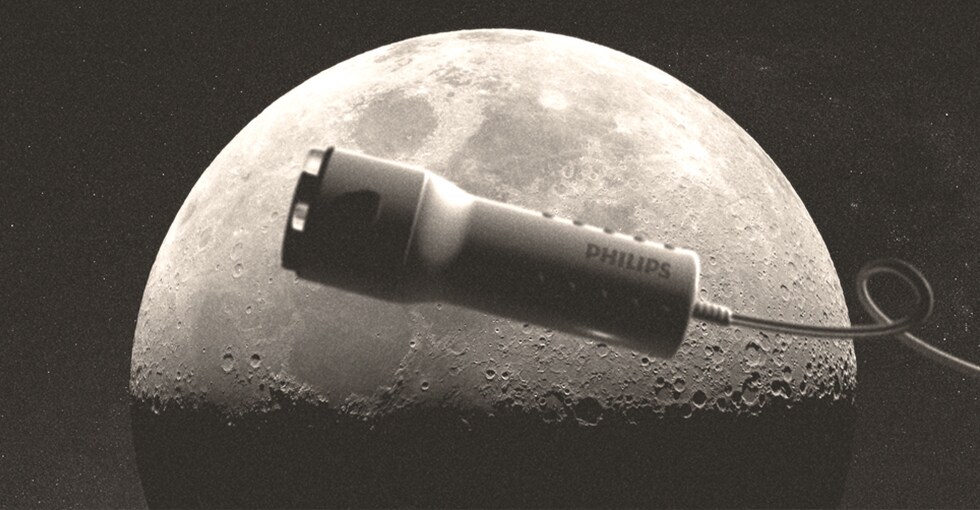The space race of the 1960s was a fierce contest between the USA and the USSR in the Cold War years. Both countries wanted to produce the technology to put the first man on the moon. But with millions of TV viewers watching that historic moment, it would have been very tempting for the astronauts to have a quick shave first.
Was a Philips shaver secretly involved with NASA’s space program? For lovers of conspiracy theories, the evidence is compelling. Philips was already a technological pioneer way back in 1914, when it set up the Philips Research organization. This quickly became a major center of technical competence and innovation, despite being populated by employees who wore clogs in their spare time. More revolutionary than the USSR (or USA) Philips’ research scientists shared the company’s innovative spirit. They quickly developed X-ray tubes, radio valves, electronic systems and the magnetic materials that led to the invention of the rotary shaving system – a literally revolutionary concept for the time. In contrast, space technology was still in its infancy. It took till 1957 for the USSR’s Sputnik 1 to manage a single revolution (okay, of the earth), and it was another 12 years before the USA’s Apollo 11 landed on the moon. An all-American tale…or maybe not When the moon landing finally occurred, the Americans were thrilled. They told the world about how their amazing collection of space-age gadgetry had made it possible for them to beat the Russians to a defining moment in history. But maybe one key item on board the Apollo 11 was actually Dutch. Just before blast-off, the Philips scientists quietly passed NASA their latest development: the dual-rotary MoonShaver. Capable of vacuuming up the shaven hairs that would otherwise have floated around in zero gravity, it was designed to protect the astronauts’ eyes as well as their appearance. To the moon and back? Although we can´t say for sure whether this vital piece of Dutch technology actually made it to the moon, a commercial for it definitely accompanied the TV coverage of the historic take-off. What´s more, Neil and Buzz were ready for the cameras on their return. Another Philips shaver in space Nowadays, nearly 50 years after that giant leap for mankind, both space travel and rotary shaver technology have been refined enormously. Space flights lasting just an hour or less will soon become possible thanks to XCOR Space Expeditions, while the new Philips Shaver series 9000 is already turning shaving into an experience that’s out of this world.
